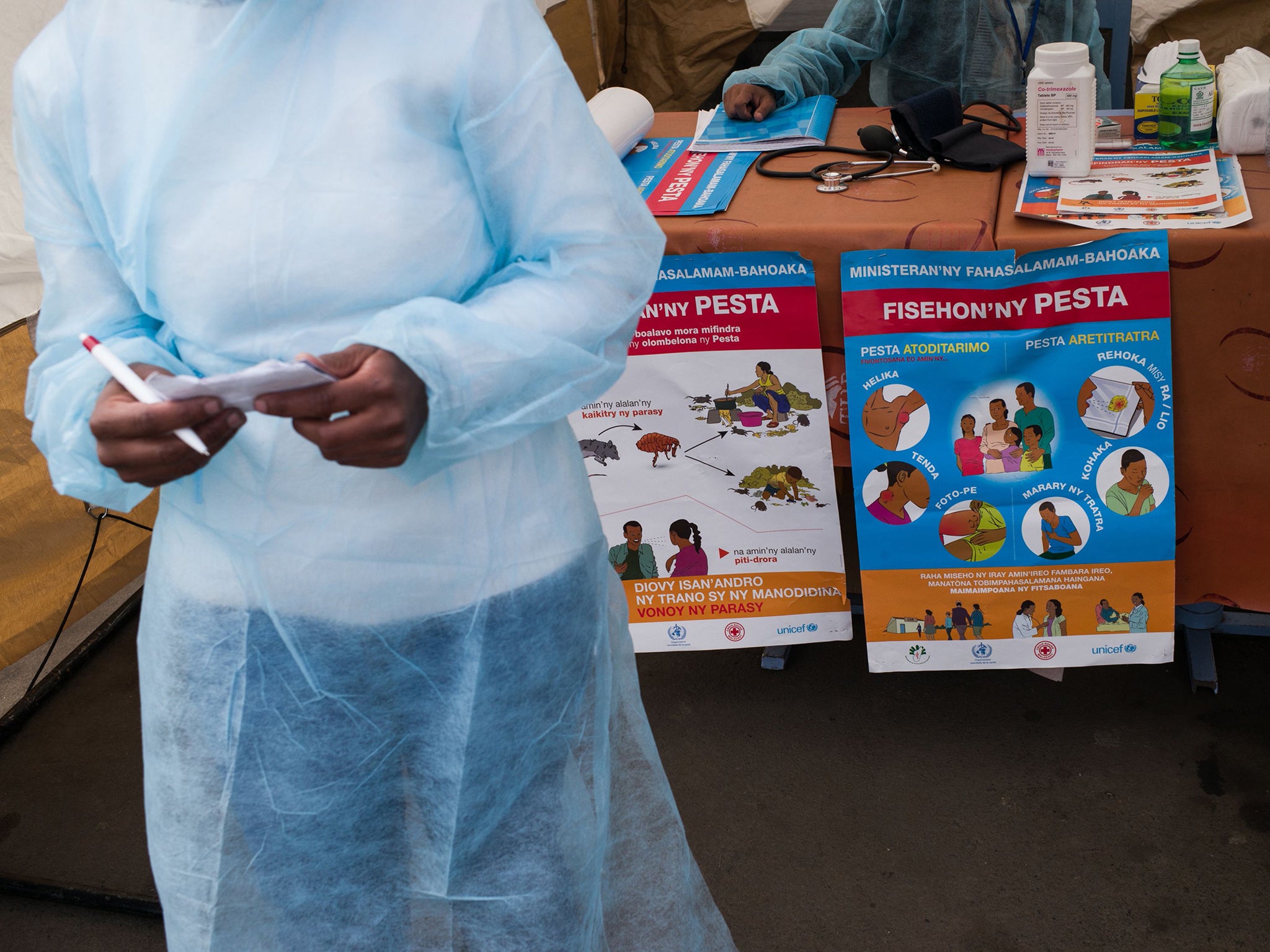Madagascar plague outbreak kills more than 30 people as aid agencies step up response
Fears rise as infections reach crowded cities

Your support helps us to tell the story
From reproductive rights to climate change to Big Tech, The Independent is on the ground when the story is developing. Whether it's investigating the financials of Elon Musk's pro-Trump PAC or producing our latest documentary, 'The A Word', which shines a light on the American women fighting for reproductive rights, we know how important it is to parse out the facts from the messaging.
At such a critical moment in US history, we need reporters on the ground. Your donation allows us to keep sending journalists to speak to both sides of the story.
The Independent is trusted by Americans across the entire political spectrum. And unlike many other quality news outlets, we choose not to lock Americans out of our reporting and analysis with paywalls. We believe quality journalism should be available to everyone, paid for by those who can afford it.
Your support makes all the difference.Aid organisations have stepped up their response to an outbreak of plague in Madagascar that has killed nearly three dozen people.
The Red Cross has mobilised 700 volunteers on the island while the World Health Organisation (WHO) said it had shipped 1.2 million doses of antibiotics.
Authorities have banned large gatherings to avoid more people becoming infected.
The WHO said on Friday that so far, 231 people have become infected and 33 people have died. Most infections were cases of pneumonic plague, the more deadly version of the disease that is passed from person to person.
Its medicines should be enough to treat 5,000 patients and protect 100,000 more from potential infection, the WHO said.
Red Cross officials said the situation had worsened because the pneumonic plague, which along with its bubonic form is endemic to the island, had spread to areas in which it is not typically found, including crowded cities.
The outbreak began after the death of a 31-year-old man in Madagascar's central highlands in late August.
The dead include a basketball coach from the Seychelles who was participating in a tournament in Madagascar's capital, Antananarivo.
Five people have died of plague in the capital, reported L'Express de Madagascar, a daily newspaper.
Many people have bought surgical masks and other medical supplies in large quantities, raising concerns about a shortage of medicine.
"Once everybody hears that this is a major thing, everyone runs out and buys everything at the pharmacy," said Joshua Poole, the Madagascar representative for Catholic Relief Services, an aid group based in Baltimore, Maryland in the US.
"Access to those essential items is a challenge."
Additional reporting by agencies
Join our commenting forum
Join thought-provoking conversations, follow other Independent readers and see their replies
Comments